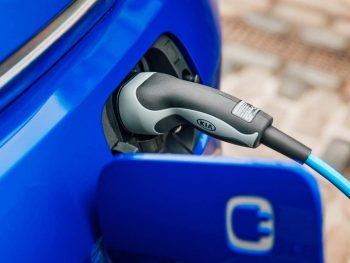UK new car sales forecast rises but grant changes to impact BEV demand
The forecast for 2021 new car registrations has increased on the back of rising market confidence – but with fewer battery electric vehicles (BEVs) than expected due to the changes to the grants.

In April 2021, BEVs accounted for 6.5% of the UK new car market, compared to 6.8% for PHEVs; the result of the Plug-in Car Grant changes
The prediction has been published by the Society of Motor Manufacturers and Traders (SMMT) as it publishes new car figures for April showing, as expected, that registrations were up on 2020’s lockdown sales but remain down on the average figure.
The data for April reveals an artificial 30-fold increase of new car registrations compared to the same month last year, but volumes were 12.9% lower than the 10-year average at just 141,583 new units.
It’s a similar story for fleet; April 2021’s registrations were up 25-fold to 77,241 units from the lowly figure of 3,091 in the same month last year. But by way of comparison, April 2019 fleet registrations stood at 90,016 units.
The year-to-date picture is also skewed by the comparison to lockdown figures last year; the market is currently up 16.2% to 567,108 units. But it’s really down some 32.5% on the average recorded over the past decade.
And while fleet registrations for the year-to-date are up 23.9% to 308,913 units compared to 2020, they’re down 30.4% on the 443,666 units recorded in the first four months of 2019 – which was itself slightly down on the equivalent figure for 2018.
Nonetheless, the SMMT said there is light at the end of the tunnel and it has revised its full-year forecast upwards from 1.83 million – based on a snap poll in February – to around 1.86 million new cars. This would be a 13.9% increase on 2020 and reflects the more upbeat economic outlook on the back of vaccine rollout and easing of the lockdown restrictions in line with government roadmap. But it would still be some 20.2% down on the average of 2.33 million registrations a year recorded between 2010 and 2019.
And the SMMT has said that BEVs are now only expected to account for 8.9% of registrations by year-end – down from the 9.3% initially forecast in January, in light of March’s changes to the Plug-in Car Grant. PHEVs are anticipated to take a 6.3% market share. Meanwhile, total plug-in vehicles should comprise 15.2% of all cars registered in 2021.
April’s data shows total plug-in registrations accounted for 13.2% of the market, broadly following the trend seen in recent months, while PHEVs took 6.8% of the market – unusually, this was higher than the 6.5% taken up by BEVs and is the result of the cuts to the Plug-in Car Grant. For Q1 2021, BEVs had been running at 7.5% of total registrations.
Commenting on the figures, Michael Woodward, UK automotive lead at Deloitte, said there is still hope that the sector could be set for a sustained period of recovery – with next month’s results to provide a better indication – but said the ongoing global shortage of semi-conductors means that, even as sales start to return, there is little respite for the sector.
“Global car production is estimated to have been cut by 700,000 between January and March and with warnings that chip shortages could persist into next year, this is an issue that is not going away. We could see fundamental and lasting changes to supply chains.”
And Centrica Business Solutions has called for action on common barriers to EV adoption such as access to charging infrastructure, to enable the momentum in the EV rollout to continue.
Lucy Simpson, head of EV enablement, added: “If we are to ‘build back better’ from the impact of Covid-19, financial incentives that help promote the uptake of EVs among both businesses and individuals must also remain a priority for policymakers.”

